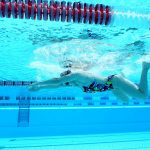Strategies for racing at your best and overcoming anxiety
Races are definitely one of the hardest things an athlete has to cope with. There are various techniques for helping athletes to overcome their anxiety. Find out what they are.
Races are definitely one of the hardest things an athlete has to cope with. It is the moment when athletes can see how well they are progressing, bearing in mind that their expectations are often very high. This is also when athletes begin to show signs of anxiety that can affect their performance.
In both team and individual sports, anxiety is something that affects all athletes, from elite competitors to amateurs.
When anxiety arises, an athlete can react in two ways:
- ignore the feeling and its impact on performance, threatening any chances of achieving their goal;
- be aware of this feeling before a race and learn how to handle it and, eventually, get rid of it.
Anxiety affects performance because it is closely tied to certain physiological means of conveying energy from the muscles, muscular-skeletal apparatus and cardiovascular system to the brain, which, in turn, requires more oxygen due to the anxiety affecting the athlete.
So, what causes anxiety? An initial cause, if not THE cause, is certainly setting the bar too high for your own ability or having unrealistic expectations. Athletes suffering from anxiety are easy to spot because they show signs of nerves, sweat excessively, have an accelerated heartbeat and are moody.
Fortunately, there are various techniques for helping athletes overcome their anxiety. These techniques need to be practised during training and then applied in races. Let’s see what they are.
1. Relax. This enable athletes to lower their heart rate and control their breathing, so they can concentrate on technique. Relaxation methods need to be practised all the time, not just before a race. This will help athletes manage their anxiety much more effectively.
2. Be goal-oriented. Not all races are equally important, so you need to learn how to analyse your performance. Learn how to monitor your different levels of physical fitness throughout the season. Being aware of what you are doing and taking responsibility for it is another step towards getting rid of anxiety.
3. Focus on what is within your control. Unfortunately, you cannot stop or slow down the competitor in the lane next to you, so do not waste time analysing every aspect of their swim stroke. Focus on what you can control. Your own swim stroke, your own race pace, and attention to all those details you have worked on in training. Focusing on aspects of your own swim stroke will certainly help you become less anxious.
4. Think about other things. This might seem a less important strategy, but keeping your mind focused on thoughts other than the race can be an excellent exercise for lowering anxiety. So, paradoxically, the more things you do on race day without thinking about the race itself, the greater your chance of perform better on the day.
Sources
‘Life Coaching’ School – Prometeo Coaching
Written by:
arena coaches
Swim coaches, trainers and experts will give you all kinds of tips for performing at your best in both training and races.







